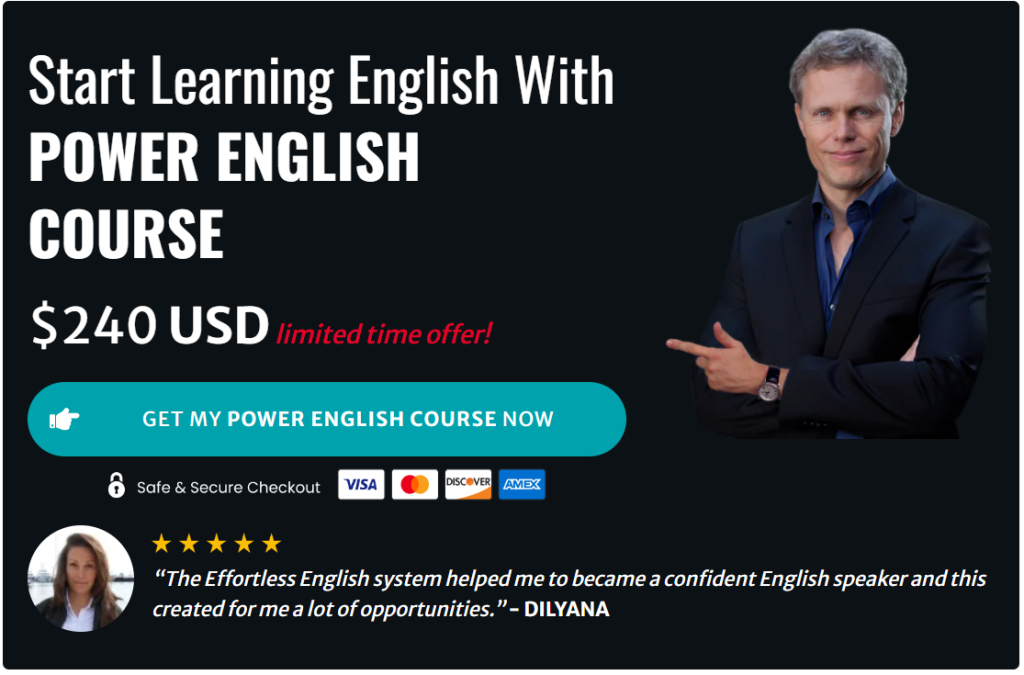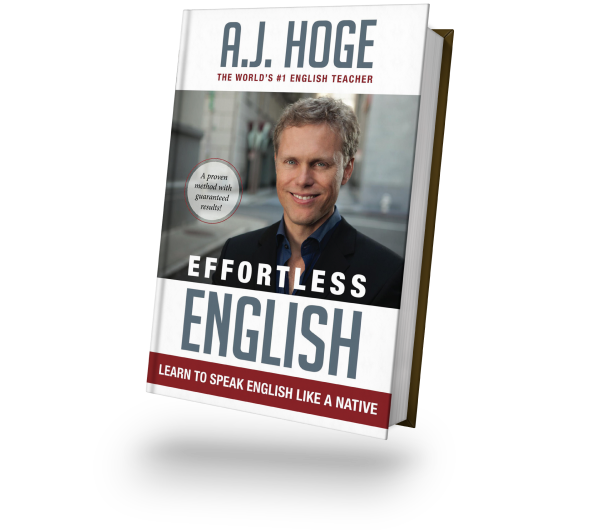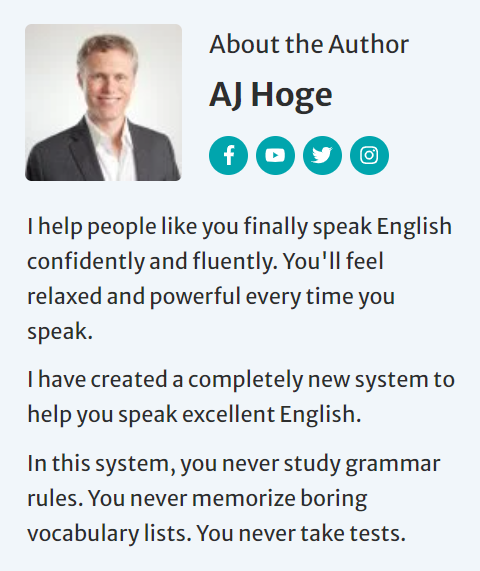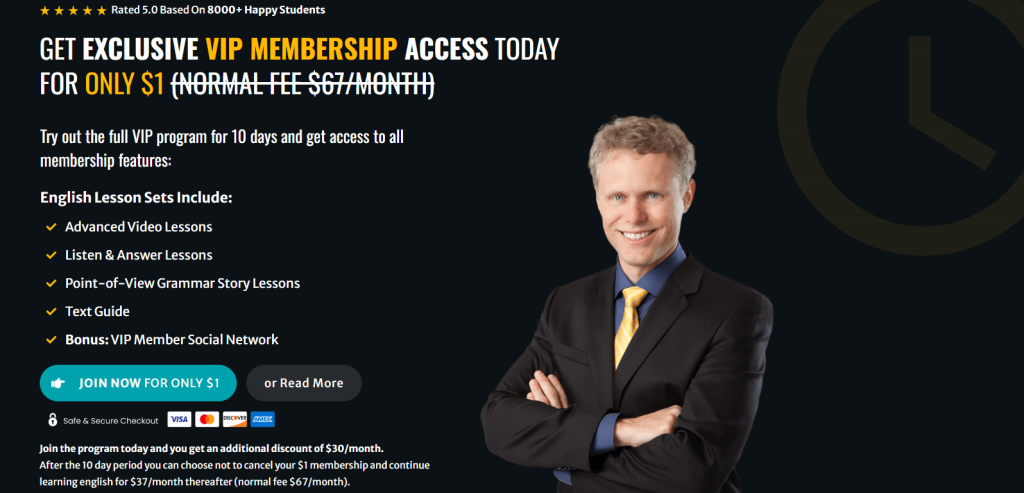Breaking bad habits, creating good habits. Why is it so difficult? It’s difficult, right? You’re learning English. You want to have good habits. You want to listen to your English lessons every day one hour, two hours a day, maybe more. But then you find you don’t do it. Instead you play on your phone. You text people, you watch videos, you do all kinds of other things that are not good habits.
You know these bad habits are not helping you in life. They’re not going to help you get better jobs. They’re not going to help you speak English better. They’re not going to help you have a better life. So why are you get stuck in these patterns? Our topic today is how to break bad habits and how to build good habits.
We’re talking about a chapter from the book ATOMIC HABITS. My VIP members right now are doing a book club and they’re reading this book Atomic Habits. They recommended this book to me.
Most people when they try to break a bad habit or when they try to create a good habit they do it the wrong way. Today we’re going to learn a better way, a more powerful way.
Atomic Habits
You want to study English every day, you want to exercise every day, eat healthy food, all these good habits.
Imagine three circles right, like a target. In the center circle is IDENTITY. Then the next circle outside that is PROCESSES (systems, habits). Then finally in the last circle is OUTCOMES (goals, results).
Let’s talk about identity. What is identity? Identity is who you think you are, the kind of person you think you are–your beliefs about yourself. You could have a religious identity, for example “I am a Vaishnava”. You could have an identity related to exercise and say “I’m a runner”. This is not a specific outcome. These are ideas about yourself. That’s identity– that’s at the center.
Then the next level is processes. These are habits, things you do frequently. “I am a runner”, that’s your identity. If you have a habit of jogging 30 minutes every day that’s a process.
Then finally you have the outcomes. Outcomes are specific results. For example: run a 5K race in under 21 minutes.
The deepest level is identity. The big mistake a lot of people make is to focus on the outcome first. They focus first on goal setting.
But the problem is that you need a lot of motivation to achieve a goal. And what creates the best motivation?
The best motivation is when a habit becomes part of your IDENTITY.
If you think and really feel “I am an English speaker” then it’s part of you. You don’t need to try to force yourself to do it. It’s part of who you are and it becomes very easy to do it every day. You want to read, to listen, to speak in English. For example, the real goal is not to run a marathon, the real goal is to become a runner.
But maybe now you have a negative identity. For example, you think “I’m not a good English speaker”. “I’m terrible, I’m shy, I don’t like to speak English”. Or “I get bored listening to English”. So how do you change that identity. How do you develop and create a positive identity.
It’s a simple two-step process:
1. decide the type of person you want to be
2. prove it with a lot of VERY SMALL successes
Don’t try to change your identity with one huge goal. Just make little small habits so that you’re doing it a little bit every day.
For example, you say, “I’m an English speaker”. You know you don’t have to be the best English speaker. You don’t need to be perfect. You don’t even need to be fluent. You could just start with listening. Just get an Effortless English course or join my VIP program. Just listen one hour every day. You’re doing English every day. You go for a walk with your headphones and you just listen an hour a day while you walk outside. Easy. No stress. No pressure. You don’t need to speak perfectly. You don’t need to do it five hours a day. You don’t even need to talk to anybody in the beginning. This is such an easy habit to make. Listening to the mini-stories and the more difficult commentaries every day. This changes your identity.
Then maybe after three months you feel good and your identity is changing. THEN you make the habits bigger. You listen two hours every day. Then two months later, you decide to talk to somebody on Skype once a week in English. You can add more and add more and add more but in the beginning start with your identity. Start with very easy habits. If you’re really having trouble now with English then just listen to my mini stories. I mean that’s super easy to do. That’s very simple and very easy. It will help you improve a lot and it’s easy to do right now.
No pressure. No stress. In the beginning, don’t make a big goal to pass the TOEFL test with a high score. That’s a lot of stress and pressure.
Start with easy habits first. Focus on something you can easily do every day. You’re creating habits that are focused on your identity. You’re not focusing so much on big specific goals. Big specific goals can help later. Big specific goals are okay but they’re not the most important thing.
First change your identity. Then create LITTLE habits that are easy to do.
Then finally, when your identity is changed, then start going for the big goals.





